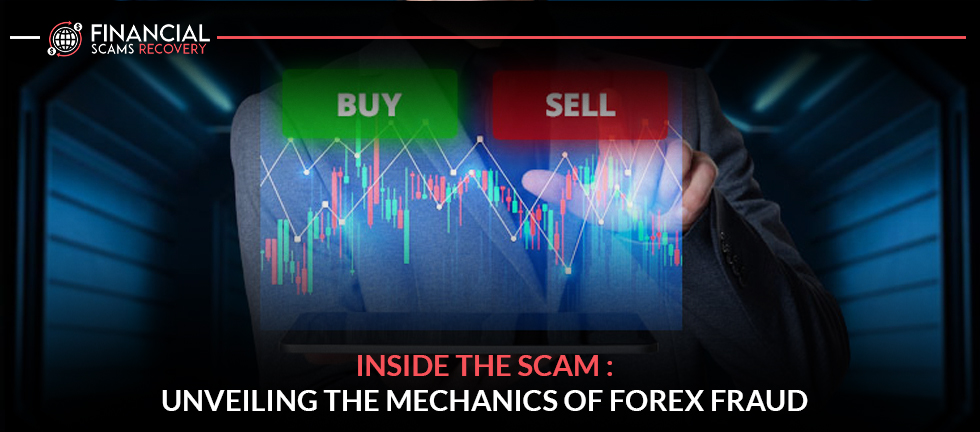


Forex trading, also known as foreign exchange trading, is where people buy and sell currencies around the world. While it can be a potentially profitable activity, it’s important to be aware that scammers often target forex traders.
Intrigued by forex trading, but worried about scams? This post will unveil the tricks scammers use, how to identify them, and keep your hard-earned money safe.
There are no scams in forex trading itself, but there are people who use it to take advantage of buyers who don’t know what’s going on. Scams like these come in many forms, such as fake trading methods and shady brokers.
Beware of forex scams that lure you in with promises of easy money and guaranteed returns. These scammers pressure you to invest large sums of cash, assuring you they’ll manage your account and make you rich. But once you send them your money, they vanish, leaving you empty-handed.
Forex scammers come in many forms. They could be someone posing as a broker, a teacher selling a trading course, a money manager offering their services, a programmer selling software, or even an event planner. The variety of scams can be overwhelming, but there are some general red flags to watch out for:
Here are the three most important things I look for in scams in the forex market:
Scammers often shower you with praise, promising trading success and hefty profits while conveniently glossing over the risks involved. This should serve as a red flag: Reliable brokers don’t resort to deceitful claims or assure you of guaranteed earnings.
Often, con artists employ tactics such as urging you to send them money, including digital currencies like Bitcoin. These solicitations frequently utilize high-pressure sales strategies, coercing individuals into swift action. Trustworthy brokers under strict regulation will never compel you to deposit before you are fully prepared.
Images frequently praise the ostentatious trappings of wealth like luxury cars, private jets, and yachts as symbols of the “trader’s lifestyle.” However, authentic brokers focus on sharing market insights, trader education, and technical and fundamental analysis, rather than flaunting flashy lifestyles. Explore my curated list of top-notch free forex trading classes for safe and effective learning opportunities in forex.
This kind of scam says you can make a lot of money with little or no risk. Investors are told that they will get their money back plus a profit. But the con artist doesn’t trade with the money; instead, he or she pays off earlier investors with the money from new investors.
In this type of scam, someone pretends to be a financial adviser and tells people to invest in forex trading without telling them about their own financial interests.
In this type of scam, a company that isn’t registered offers forex trading services without the right licences or rules.
In this type of scam, investors are asked to pay large amounts of money quickly by using high-pressure sales techniques.
In this type of scam, the con artist either won’t return the investor’s money or makes it hard for them to get their money back.
In this type of scam, an automatic trading system is used that claims to make money but actually loses money.
The foreign exchange (forex) market presents ample opportunities for profit and business expansion, but it also harbors significant risks and hurdles. Safeguarding your finances from fraudulent activities is crucial. Familiarize yourself with common scams such as sales fraud, Ponzi schemes, data manipulation, robot scams, broker scams, and deceptive bonuses. Should you require assistance, Financial Scam Recovery is available to support you. Remember, diligence and research are your best defenses against forex scams. By seeking sound advice, conducting thorough research, and making informed decisions, you can confidently navigate the complexities of the forex market, safeguarding your investments and securing a prosperous financial future.